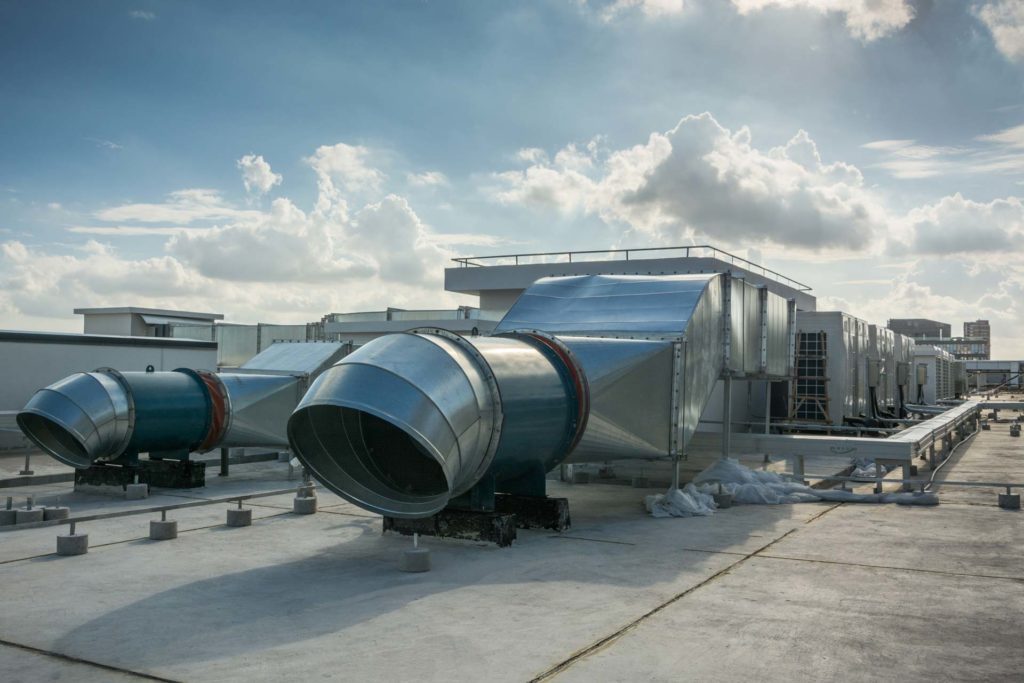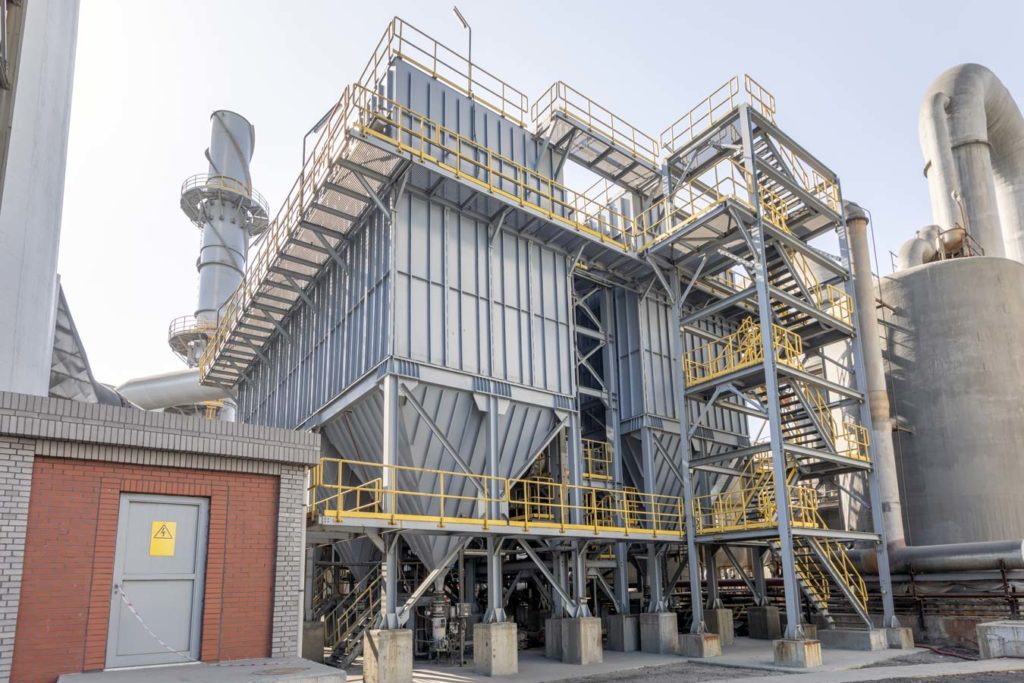Industrial fans and blowers are essential for a wide range of industries. These airflow devices promote safe workplace environments, increase energy efficiency, and cut operating costs. Choosing the right fan or blower can help your business create safe, cost-effective, and sustainable operations.
Knowing the differences between an industrial fan and a blower will help you decide which device is best suited for your air circulation needs.
The Difference Between Industrial Fans and Blowers
According to the American Society of Mechanical Engineers (ASME), the distinction between fans and blowers is based on each device’s discharge pressure and suction pressure ratio.
A fan is defined as a device with a pressure ratio up to 1.11, while a blower has a pressure ratio between 1.11 and 1.2. Fans employ blades for rotation, while blowers use impellers. Though fans typically require less electricity to operate than blowers, both types of devices can drastically cut energy costs.
The key difference between industrial fans and blowers is this:
- Industrial fans create flow and move air through a system and disperse it into the environment.
- Industrial blowers, on the other hand, take in high volumes of air and push the airflow through a system to a specific location.
Now that you know the difference between industrial fans and blowers, we can compare the benefits of each device to determine which option is right for you.
What Are Industrial Fans Used For?
Continuous welds, ball or roller bearings, and stainless steel housing help industrial fans perform a variety of functions. Industrial fans promote workplace health and safety by replacing stagnant, polluted air with a fresh supply.
Several industries can benefit from industrial fans, including:
- Automotive businesses: long-lasting, low-maintenance fans safeguard workers from explosive environments.
- Oil and gas companies: industrial fans are built with welded flanges capable of withstanding corrosion, abrasion, and other industry-related hazards.
- Gyms: wall-mounted fans help gyms optimize their floorplans while providing clean, refreshing airflow for gym members and employees.
- Power generation: industrial fans can withstand high temperatures with industry-specific bearings and heat-resistant paint and coatings.
Benefits of Industrial Fans
Industrial fans are versatile devices that help you regulate the temperature in your environment with varying ranges of output. For instance, industrial fans can create an evaporative cooling effect of up to ten degrees during hot summer months.
Industrial fans can support your thermostat resulting in lower operating costs. You can use industrial fans to maintain proper temperature, lower costs, and promote energy efficiency. These applications provide compact yet long-lasting designs to support each client’s unique airflow needs.
What Are Industrial Blowers Used For?
Industrial blowers are essential for many manufacturing operations. For instance, these devices are used in the agriculture, chemical, and food processing sectors. Industrial blowers can help manufacturers achieve the following tasks:
- Ventilation
- Exhaust
- Combustion
- Cooling
- Aeration
- Particulate transport
- Drying
- Air cleaning
Centrifugal blowers are the most-used type of industrial blower since they generate constant air movement. In addition, the centrifugal blower’s design can handle high temperatures, moisture, and dirt particulates.
Axial blowers are typically used for ventilation, simple extraction, and cooling purposes. These blowers’ primary goal is to supply fresh air to specific environments. Axial blowers are more compact than their centrifugal counterparts. Therefore, they are the ideal solution for dist streams, steam, or smoke issues.
Benefits of Industrial Blowers
Good airflow is essential for many manufacturing operations. Industrial blowers assist with cleaning the air and filtering dirt and harmful chemicals out of the air supply. These blowers are incredibly durable and can withstand harsh conditions for years without needing repairs or replacements.
Industrial blowers improve workplace safety by keeping the air clean and maintaining cool temperatures. Since industrial blowers rely on kinetic energy, they are extremely energy efficient, and small alterations can greatly improve a blower’s efficiency.
Is An Industrial Fan or Blower Right for You?
Choosing the right airflow device promotes workplace safety and sustainability. An industrial blower or fan can help your business improve energy efficiency and lower operating costs.
For more than 20 years, Baghouse America has developed industry-leading environmental solutions for numerous domestic and foreign clients. We proudly provide full-scale baghouse installations and non-proprietary replacement parts.
Our devices and parts are built to last for a fraction of our competitor’s prices. Our team can develop durable, cost-effective industrial fan or blower solutions for your unique environmental needs. Contact Baghouse America today for a quote and let our team help you decide whether an industrial fan or blower is the right solution for your business.

